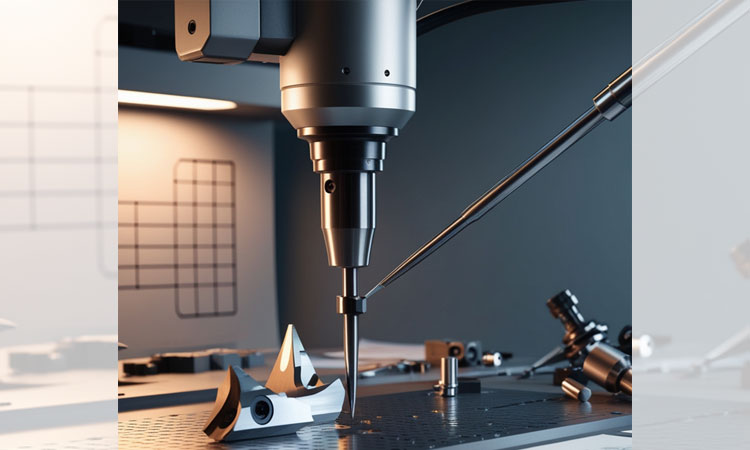In today’s high-stakes manufacturing landscape, where precision is paramount, the cutting tools industry is leaning heavily on advanced metrology to ensure quality and reliability. With the global cutting tools market projected to reach USD 29 billion by 2030 at a CAGR of 6%, the role of precision metrology has never been more critical. In India, the market is growing at 7.5%, driven by sectors like automotive, aerospace, and defense, which demand unparalleled accuracy in machining operations.
The Role of Metrology in Cutting Tools
Metrology—the science of measurement—is the backbone of quality control in cutting tool manufacturing. By ensuring precise dimensions, geometries, and surface finishes, metrology guarantees that tools meet stringent industry standards. Advanced metrology techniques enable manufacturers to monitor cutting edge angles, flute geometries, and wear patterns, ensuring tools deliver optimal performance and longer life cycles.
Globally, manufacturers employing precision metrology report up to a 30% reduction in tool rejection rates and a 20% improvement in machining accuracy. In India, where manufacturing exports are growing rapidly, the adoption of metrology technologies is pivotal in meeting international quality benchmarks.
Advanced Metrology Techniques
The evolution of metrology has introduced cutting-edge technologies that enhance measurement precision and speed:
- Coordinate Measuring Machines (CMMs): These devices offer three-dimensional measurement capabilities, allowing manufacturers to inspect complex tool geometries with micron-level accuracy.
- Laser Scanning and Optical Measurement Systems: Non-contact methods like laser scanning ensure rapid and precise measurement of cutting edges, tool radii, and surface finishes, reducing inspection time by 50%.
- In-Process Metrology: Integrated into machining systems, in-process metrology provides real-time feedback on tool wear and dimensional deviations, minimizing downtime and enhancing productivity.
Enhancing Tool Performance and Reliability
Precision metrology is essential in ensuring the reliability of cutting tools under challenging conditions. Accurate measurements help optimize tool designs, enabling improved chip evacuation, reduced cutting forces, and enhanced heat resistance. For instance, metrology-driven improvements in cutting edge preparation can boost tool life by 25% and reduce power consumption during machining by 15%.
The Indian Scenario
India’s manufacturing sector, which contributes approximately 17% to the national GDP, is embracing metrology technologies to enhance competitiveness. Automotive giants like Tata Motors and Maruti Suzuki are investing in precision metrology systems to ensure tool quality and machining consistency. Additionally, government initiatives such as “Make in India” are encouraging SMEs to adopt metrology solutions to meet global standards.
Bridging the Gap: Industry Collaboration
Collaborations between metrology equipment providers and cutting tool manufacturers are driving innovation. Global players like ZEISS, Mitutoyo, and Hexagon are partnering with Indian tool manufacturers to integrate metrology solutions tailored to specific needs. These partnerships are accelerating the adoption of smart metrology systems, combining data analytics and AI to provide actionable insights.
Precision metrology is no longer a luxury but a necessity in cutting tool manufacturing. By ensuring dimensional accuracy, enhancing tool performance, and enabling real-time monitoring, metrology plays a pivotal role in meeting the demands of modern machining. As industries worldwide strive for higher efficiency and sustainability, metrology will remain at the forefront, driving the cutting tools sector to new heights of precision and reliability.


